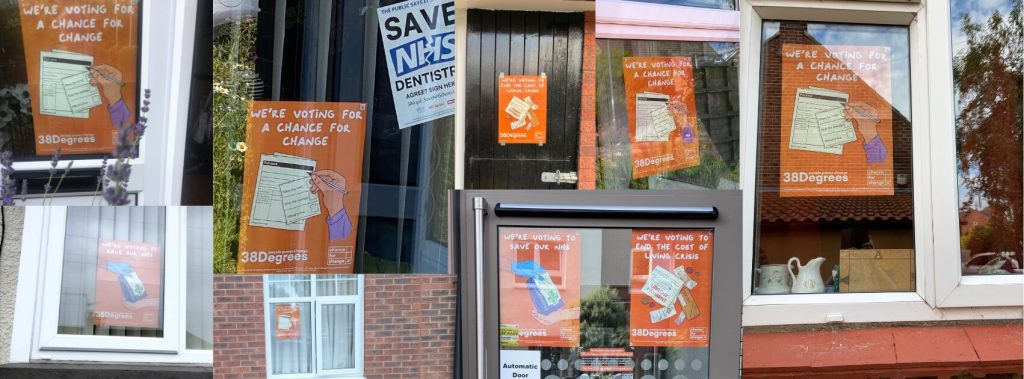

Jun 19th, 2024
Do you think the sea is safe to swim in?
By Matthew McGregor
Two out of three Brits think UK seas are too dirty to swim in thanks to the disgusting sewage crisis that has seen water companies literally take the p**s out of us all.
That’s according to a new poll we commissioned by Survation. Little more than two out of 10 people across the country are confident in the cleanliness of our waters: nationally, just 22% of people agreed with the statement “The water in British seas is clean enough to swim in”, while 66% said “The water in British seas is not clean enough to swim in” (the rest didn’t know).
The state of our rivers and seas is absolutely appalling. The years-long sewage scandal is ruining the image of Britain’s coast, leaving people too disgusted to swim in our waters. Towns like Brighton and Blackpool are synonymous with the image of the Great British Seaside, and paddling in rock pools or going for a dip should be a natural part of a day out on these beaches. But people don’t want to swim in seas filled with raw sewage, let alone let their kids splash around in them.
It’s not just that families are missing out on fun days out and swimmers are being denied the chance to enjoy the open waters. Imagine the impact on seaside businesses, when people up and down the country are so sickened by sewage that little more than two in 10 people think our seas are clean enough to swim in.
Our poll shows just how appalled people are.
Survation used a technique called multilevel regression and post stratification (MRP) – an approach they used to correctly call 94% of seats in the 2019 General Election – to calculate responses for every constituency in the UK, revealing huge numbers of people living in quintessential seaside destinations are even more worried about filthy water than the country as a whole.
Here are some of the findings:
- In Blackpool North and Fleetwood, 81% of people say the sea is too dirty to swim in, while in Brighton Kemptown and Peacehaven, the figure is 79%.
- 79% of people are too disgusted by the state of the water to swim in the Cornwall constituency of Truro and Falmouth, while the same percentage think it’s too dirty for a dip in South Norfolk.
- By contrast, in Scotland, where water and sewage systems are run by publicly owned Scottish Water, people are much less likely to be concerned about swimming in the water: every single constituency in Scotland was in lowest 100 for people believing the sea was too dirty to swim in, and of the bottom 30, only two constituencies were not Scottish.
We have been calling on whichever party forms the next Government to pledge to hold polluting water companies properly accountable, fining them in shares if they fail to keep our waters clean. Our petition that has already been signed by almost 60,000 people.
Enough is enough. With the General Election campaign in full swing, all parties need to hear the message: it’s time to end the scandal of sewage in our seas. Whoever becomes the next Prime Minister must pledge to hold polluting water companies properly to account.
———-
You can see the full seat-by-seat results from our poll here.
The sample size was 7,623. The survey was conducted via an online panel. Invitations to complete surveys were sent out to members of the panel. Differential response rates from different demographic groups were taken into account. Data were weighted to the profile of all adults in Great Britain aged 18+. Data were weighted by age, sex, region by age, highest level of qualification, annual equivalised household income, 2019 General Election Vote, and 2016 EU Referendum Vote. Targets for the weighted data were derived from Office for National Statistics Data and the results of the 2019 UK General Election and the 2016 EU Referendum.
Survation is a member of the British Polling Council and abides by its rules.
Using Multilevel regression and poststratification (MRP) Survation were able to use the large dataset to produce estimates of opinion and attitudes for small defined geographic areas – in this case, the Westminster constituencies which will exist following the boundary changes which will come into force at the next General Election. More information about MRPs is available at survation.com/what-is-mrp.

















